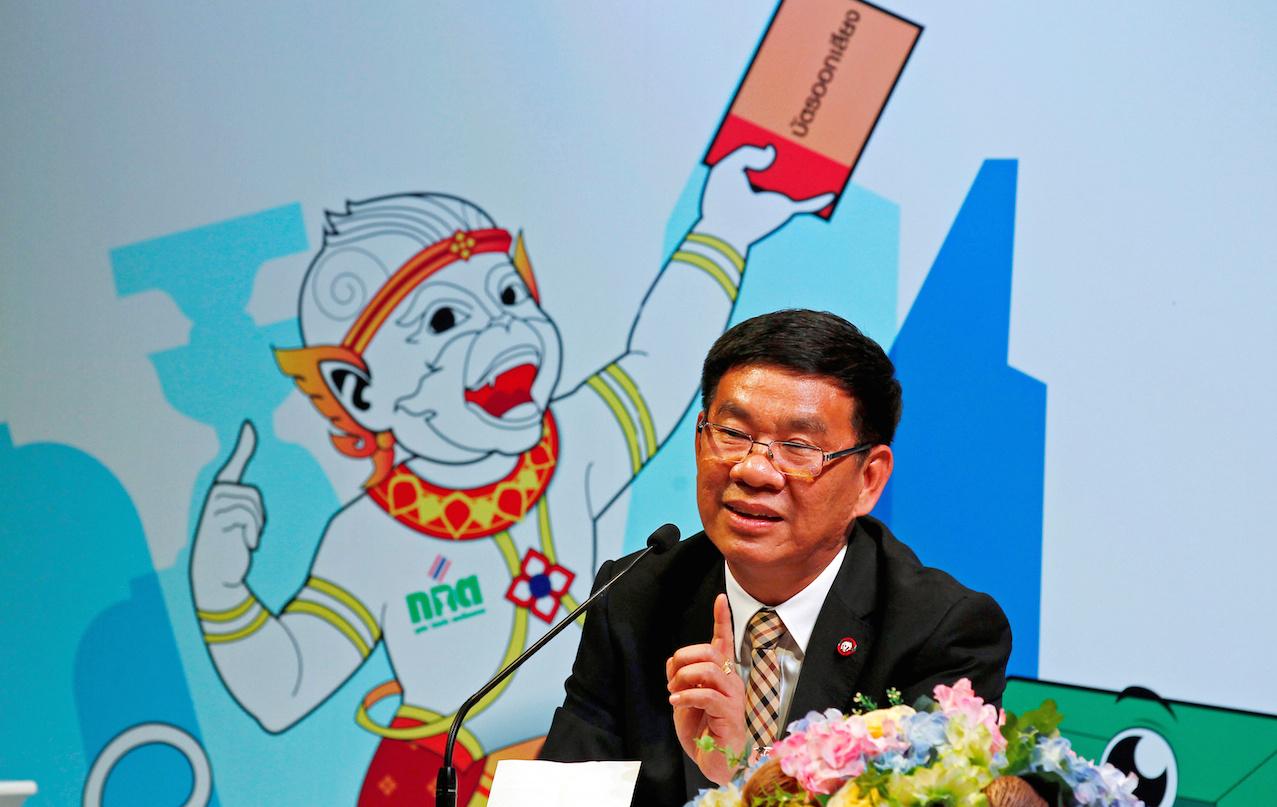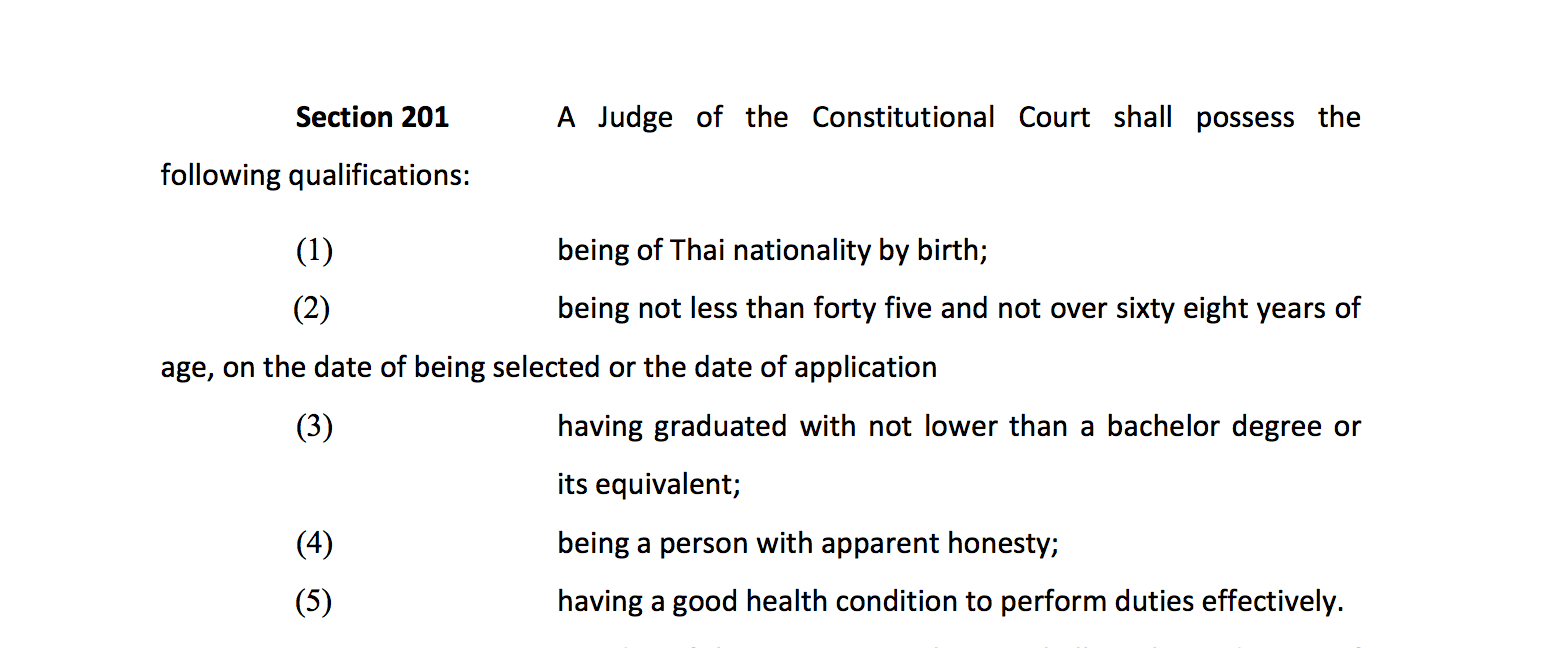Thailand just made it the law to ban ‘dishonest’ politicians
Imagine a nation purged of all “dishonest” politicians.
Better still, top judges and key cabinet officials who lack “ethical standards” are also swept from power.
This may sound positively dreamy to voters in many countries — including the United States, where about three in four adults say “most people in politics” cannot be trusted.
Well, this policy of enforced honesty is now the law in Thailand. But there’s a major catch.
“Honesty” is determined by a group of unelected bureaucrats — all beholden to an army known for enforcing its political desires with tanks and crackdowns.
This is the new political system designed by Thailand’s military junta. Now that it’s been validated by a referendum, conservative generals have reason to celebrate.
On Sunday, a majority of Thai voters approved a new constitution designed by the military and its loyalists. Under this system, a hand-picked senate and several small councils will wield immense power.

As for the masses? Their preferred leaders, chosen by election, will fill out a house of representatives.
But any candidate who wants to run for office can be culled by appointed judges and election officials beholden to the military. They just have to brand that candidate “dishonestly bankrupt” or lacking “apparent honesty.”
Exactly how they’ll measure a person’s honesty remains a mystery.
“It’s very vague,” said Henning Glaser, a constitutional scholar with Bangkok’s Thammasat University. “It’s a very volatile concept which might be used against politicians who aren’t on the right side.”
Thailand is hardly the only country that frets over dishonesty in politics.
After all, the US presidential race is mired in never-ending accusations of lying and deceit. Confidence in US senators is bleak with only 8 percent of Americans believing their “honesty and ethical standards” are high.
But Thailand’s rulers have actually elevated fuzzy notions of honesty into policy.
Various forms of the words “honest,” “ethical” or “moral” appear in the new Thai constitution a whopping 75 times.
This is typical of the Thai military, which obsesses over moral purity. When the army seized power in a 2014 coup, its leadership promised that the reign of “good people” had begun.
“In Thailand, we have this notion of ‘good people,’” Glaser said. “And ‘good people’ are loyal to the established system.”

The military has also led a purifying crackdown against people whose views are deemed bad. This has included arrests of people who’ve defied the army’s authority with docile expressions of discontent.
Thais have been charged for clicking “like” on subversive Facebook memes. They’ve been detained for raising three fingers, a salute against tyranny from the sci-fi “Hunger Games” films.
The military even threatened citizens with 10 years in prison — all for the crime of trying to “influence a voter” before the vote for the new constitution.
Campaigning against the army-designed political system was forbidden.
Meanwhile, the army deployed hundreds of thousands of its own canvassers to explain their new vision to the public. This combination of suppression and boosterism produced a strong win but not a screaming victory.
Roughly 61 percent of those who voted chose to enact the constitution. Yet, according to one poll, only about 3 percent of the population bothered to read it in full.
The ultimate outcome would likely have been similar even if voters rejected the new constitution. If the majority voted “no,” junta leaders said, they’d just come up with another system of their own design.
Moreover, many of the hardline rules enacted by the junta will remain even after the constitution becomes law, said David Streckfuss, a political analyst and professor with Thailand’s Khon Kaen University.
“All the things we see — like suppressing free speech — will stay in play,” he said. “You get more than just a constitution by voting for this draft. You get the NCPO (the National Council for Peace and Order, the junta’s formal title) forever and ever.”
Since the junta seized power, generals have repeatedly harped on their own righteousness. Their self-proclaimed goodness is forever compared to elected officials, whom they portray as conniving and corrupt.
Shortly after the coup, the military announced that schoolchildren would be required to recite a series of “12 values.” They include “having a sense of shame over guilt and sins” and remaining “unyielding to the dark force.”
This moralizing vision is no longer confined to the schoolyard.
It is now written into the highest law of the land.
And it enshrines army loyalists as the ultimate arbiters of “honesty” and “goodness” — while ensuring that anyone who represents the “dark force” can be banished from power.
Imagine a nation purged of all “dishonest” politicians.
Better still, top judges and key cabinet officials who lack “ethical standards” are also swept from power.
This may sound positively dreamy to voters in many countries — including the United States, where about three in four adults say “most people in politics” cannot be trusted.
Well, this policy of enforced honesty is now the law in Thailand. But there’s a major catch.
“Honesty” is determined by a group of unelected bureaucrats — all beholden to an army known for enforcing its political desires with tanks and crackdowns.
This is the new political system designed by Thailand’s military junta. Now that it’s been validated by a referendum, conservative generals have reason to celebrate.
On Sunday, a majority of Thai voters approved a new constitution designed by the military and its loyalists. Under this system, a hand-picked senate and several small councils will wield immense power.

As for the masses? Their preferred leaders, chosen by election, will fill out a house of representatives.
But any candidate who wants to run for office can be culled by appointed judges and election officials beholden to the military. They just have to brand that candidate “dishonestly bankrupt” or lacking “apparent honesty.”
Exactly how they’ll measure a person’s honesty remains a mystery.
“It’s very vague,” said Henning Glaser, a constitutional scholar with Bangkok’s Thammasat University. “It’s a very volatile concept which might be used against politicians who aren’t on the right side.”
Thailand is hardly the only country that frets over dishonesty in politics.
After all, the US presidential race is mired in never-ending accusations of lying and deceit. Confidence in US senators is bleak with only 8 percent of Americans believing their “honesty and ethical standards” are high.
But Thailand’s rulers have actually elevated fuzzy notions of honesty into policy.
Various forms of the words “honest,” “ethical” or “moral” appear in the new Thai constitution a whopping 75 times.
This is typical of the Thai military, which obsesses over moral purity. When the army seized power in a 2014 coup, its leadership promised that the reign of “good people” had begun.
“In Thailand, we have this notion of ‘good people,’” Glaser said. “And ‘good people’ are loyal to the established system.”

The military has also led a purifying crackdown against people whose views are deemed bad. This has included arrests of people who’ve defied the army’s authority with docile expressions of discontent.
Thais have been charged for clicking “like” on subversive Facebook memes. They’ve been detained for raising three fingers, a salute against tyranny from the sci-fi “Hunger Games” films.
The military even threatened citizens with 10 years in prison — all for the crime of trying to “influence a voter” before the vote for the new constitution.
Campaigning against the army-designed political system was forbidden.
Meanwhile, the army deployed hundreds of thousands of its own canvassers to explain their new vision to the public. This combination of suppression and boosterism produced a strong win but not a screaming victory.
Roughly 61 percent of those who voted chose to enact the constitution. Yet, according to one poll, only about 3 percent of the population bothered to read it in full.
The ultimate outcome would likely have been similar even if voters rejected the new constitution. If the majority voted “no,” junta leaders said, they’d just come up with another system of their own design.
Moreover, many of the hardline rules enacted by the junta will remain even after the constitution becomes law, said David Streckfuss, a political analyst and professor with Thailand’s Khon Kaen University.
“All the things we see — like suppressing free speech — will stay in play,” he said. “You get more than just a constitution by voting for this draft. You get the NCPO (the National Council for Peace and Order, the junta’s formal title) forever and ever.”
Since the junta seized power, generals have repeatedly harped on their own righteousness. Their self-proclaimed goodness is forever compared to elected officials, whom they portray as conniving and corrupt.
Shortly after the coup, the military announced that schoolchildren would be required to recite a series of “12 values.” They include “having a sense of shame over guilt and sins” and remaining “unyielding to the dark force.”
This moralizing vision is no longer confined to the schoolyard.
It is now written into the highest law of the land.
And it enshrines army loyalists as the ultimate arbiters of “honesty” and “goodness” — while ensuring that anyone who represents the “dark force” can be banished from power.
We want to hear your feedback so we can keep improving our website, theworld.org. Please fill out this quick survey and let us know your thoughts (your answers will be anonymous). Thanks for your time!